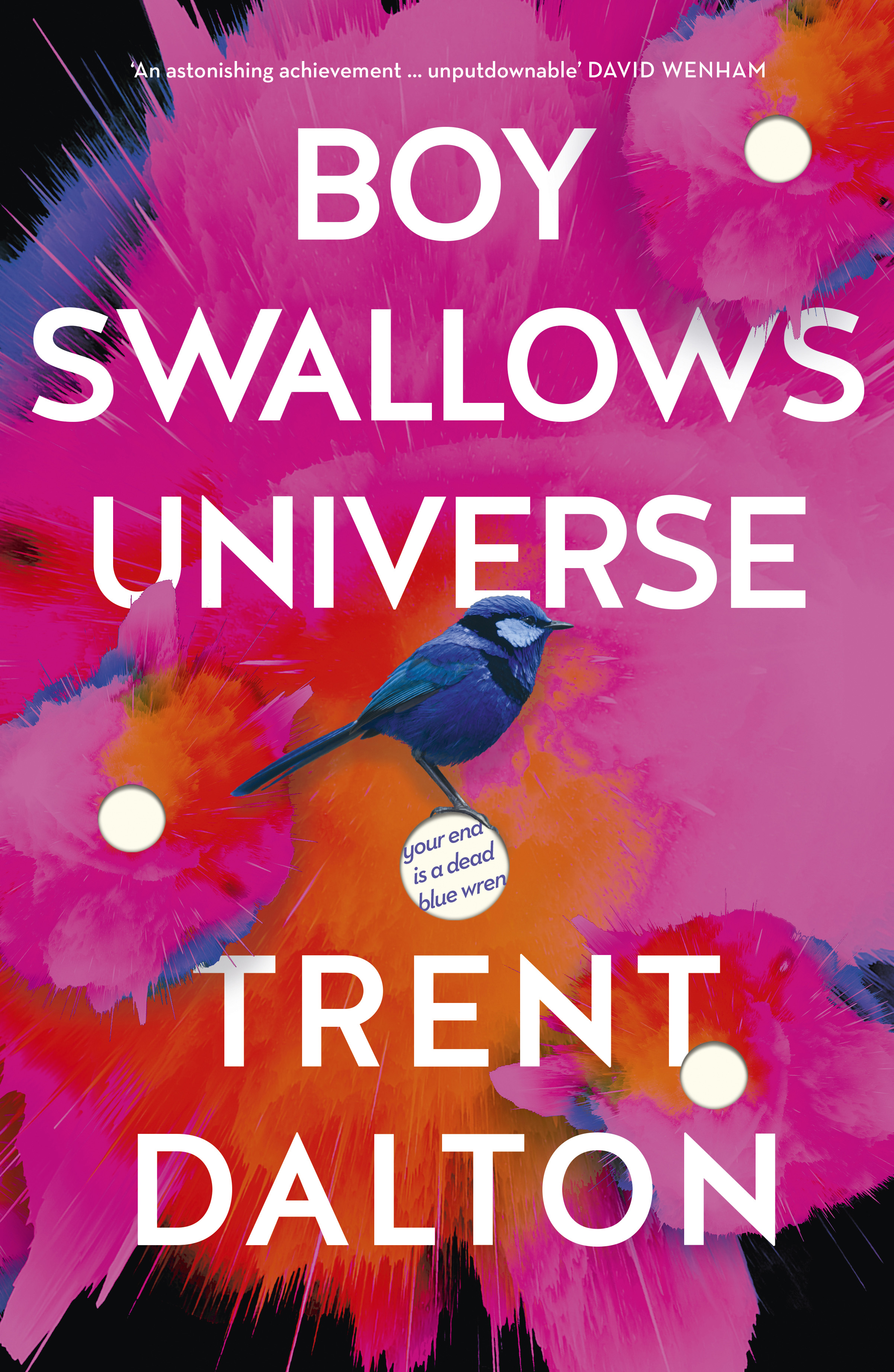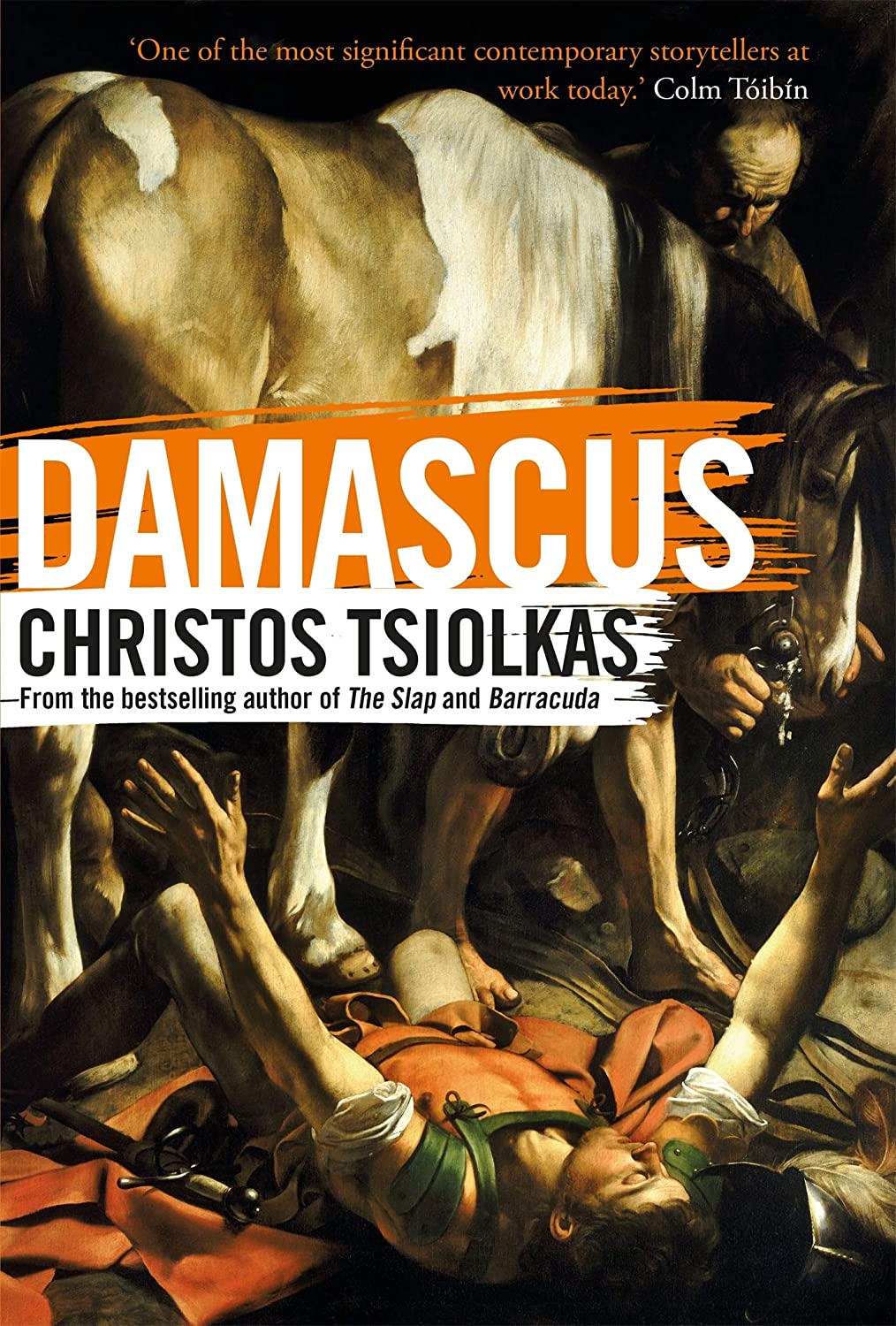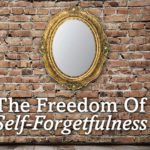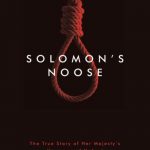This year I started up a book club for some of the men I’ve become friends with during our children’s now completed years at our local primary school. It’s been great to meet at a local pub once a month and chat about the book we’ve just finished. Most of the books I write about here have been read in the company of these men.
I was mesmerised by the prose, uplifted by the hope-amid-horror, and, apart from the disappointing ending, found this to be the most absorbing book of the year.

Boy Swallows Universe, Trent Dalton
A triumph. Much has been written about this novel so I won’t add to the gushing reviews, of which there are many. Suffice to say that I was mesmerised by the prose, uplifted by the hope-amid-horror, and, apart from the disappointing ending, found this to be the most absorbing book of the year.
The Shepherd’s Hut, Tim Winton
Winton for me is a bit hit and miss. But this is a hit. As usual for Winton, the West Australian landscape is a powerful character in itself.
Julius Winsome, Gerard Donovan
Hard to know what to say about his [this] one. Julius Winsome lives in a log cabin in the woods in the snowy US state of Maine. He is alone except for his books and a dog. Then one day he finds that his dog has been deliberately shot dead, and something snaps inside Julius. This is a wonderfully written and tender story of loneliness, lost love, and cruel revenge.
Rodham, Curtis Sittenfeld
This novel tells the story of what Hillary Clinton’s life would have been like had she not married her husband. Bill is present in the novel, and his well-publicised character traits and appetites are on full and graphic display, especially in the early, slightly tedious section. But the Hillary of the novel comes alive when she dumps Bill. If this piece of fiction in [is] an attempt by the author to rehabilitate Hillary’s reputation I think she does a pretty good job.
Grief is the Thing with Feathers, Max Porter
This novel is written from three perspectives—a writer whose wife has just died, their two sons, and a black crow who appears in the house one night, an anthropomorphism of the writer’s grief-stricken psyche. Each of these characters (the boys speak with one voice) take turns narrating the story. Porter made his name first as a poet, and this novel is most certainly poetic. And the book is very clever. But as far as explorations of grief go, I think A Grief Observed by CS Lewis is far more helpful.
Slaughterhouse-Five, Kurt Vonnegut
What a strange thing this is; part science-fiction, part black-comedy, part philosophical thought-experiment, part I-don’t-know-what. It is essentially an anti-war novel about a man who survived the Dresden bombing and who from time to time travels through time and space with aliens from another planet. This highly controversial work, written in 1969, was still being banned by at least one US school in 2009. I think I’m glad I read it.
The Secret River, Kate Grenville
I have no way of knowing if this epic story of white man’s first contact with Aborigines on the Hawkesbury River is accurate. But what a wonderfully evocative writer Grenville is. I’m going to read more of her books in the future.
Damascus, Christos Tsiolkas
So—I know this book is not going to be everyone’s cup of tea. And I’m not sure if I’m allowed to recommend it. But I’m glad I read it because it gave me a powerfully vivid picture of the society into which the Christian church was born, and in which it began to thrive. The Apostle Paul’s world was violent, depraved, inhumane, and brutal. I found it very hard to read in parts; the abuse handed out by men to slaves and women is horrific. But I know that it was the world in which the gospel bore fruit and grew (Col 1:6). So strangely, I came away from Damascus filled with renewed hope for the growth of gospel fruit in or [our] own world.
The Apostle Paul’s world was violent, depraved, inhumane, and brutal … But it was the world in which the gospel bore fruit and grew
 On the Road with Saint Augustine: A Real-World Spirituality for Restless Hearts, James K A Smith
On the Road with Saint Augustine: A Real-World Spirituality for Restless Hearts, James K A Smith
In this book Smith outlines Augustine’s journey of faith, and shows how it is the same journey each of us is on. It is thought provoking, funny, honest, insightful, and current. I realised [red underlining?] when reading it just how little of Augustine I have read, even though much of what I think is thoroughly Augustinian. I read it slowly and it was a huge help to me this year as I prepared weekly sermons.
Destiny: Learning to Live by Preparing to Die, David Gibson
We preached through Ecclesiastes in our church this year, and this book was a massive help. I appreciate the way in which the author reads Ecclesiastes, and I also like how he doesn’t get bogged down in the text. I can’t recommend this book highly enough for those who are wanting a helpful conversation partner in the book of Ecclesiastes.
Counterfeit Gods, Tim Keller
I’ve read it before, but it’s worth reading again, especially if you want to be a more thoughtful pastor and preacher. True story—I was reading this book at my local café in October and the woman serving me asked me what it was about. I said it was a book about who to turn to when the empty promises of love, money and power let you down (I read those words off the cover). “That sounds like just what I need,” she said. “Me too,” I told her.















